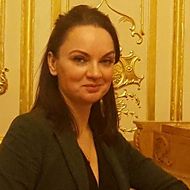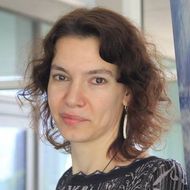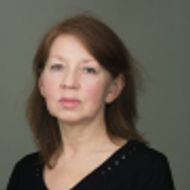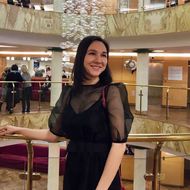- A
- A
- A
- ABC
- ABC
- ABC
- А
- А
- А
- А
- А
- HSE Campus in St. Petersburg
- School of Arts and Humanities
- Department of Foreign Languages
- News
- More than ESP - the third time
-
Department
-
Teaching
-
Teaching foreign languages at HSE St. Petersburg
-
English
-
German
-
French
-
Portuguese
-
Chinese
-
-
Features of assessment
-
English
-
German
-
French
-
Portuguese
-
Chinese
-
- Important documents
- Russian as foreign language
- Additional foreign language courses
-
Teaching foreign languages at HSE St. Petersburg
193171, Saint Petersburg,
55 Sedova Ulitsa, Building 2, room 310
phone (812) 560-03-32
198099, Saint Petersburg,
17 Promyshlennaya Ulitsa, room 405 А
phone (812) 300-83-49
194100, Saint Petersburg
3 Kantemirovskaya Ulitsa, room 210, 211
phone (812) 644-59-11 * 61526 (812) 644-59-11 * 61527
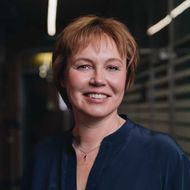

M.: Higher School of Economics, National Research University, 2023.
Nikitina N. A., Tuliakova N. A.
Vestnik Tomskogo Gosudarstvennogo Universiteta, Filologiya. 2024. No. 88. P. 196-216.
Shchemeleva I., Smirnova N. V.
In bk.: Narratives and Practices of Mentorship in Scholarly Publication. Brunner - Routledge (US), 2024. Ch. 3.
Literary Studies. WP BRP. Высшая школа экономики, 2015. No. WP BRP 11/LS/2015 .

More than ESP - the third time
On October 17-18, 2019, the Third International Conference “More than ESP” was held at the ITMO University. This year it was devoted to teaching ESP to today’s students of various majors and, particularly to linking the content and the language.
EMI (English as a medium of instruction) is gaining popularity at tertiary level, which is inevitably followed by a number of difficulties. In her keynote speech, Professor Emeritus Ann Mabbott described the situation with English as a medium of instruction in Hamline University of Minnesota, the USA. There almost a half of population are immigrants with different backgrounds. Teachers of content disciplines have to deal with many language problems, which are compounded by a high number of international students. Teachers are supported by a special program enabling them to tailor the material to the needs of students whose level is lower than B2 - which is a must for those who are studying for their degree in an English-speaking surrounding.
The keynote speech was then followed by the International Plenary Panel “From ESP to EMI: how to support students and teachers through the transition”. Here is what interested us most as HSE instructors of English:
- undergraduates at Tampere university initially think their language teachers are stupid, but then are thankful and English is the primary language at work in Tampere. Also, students who enroll are good at speaking, but lag behind in professional English (as argued by Mira Grönvall, head of the degree programme in Business Information Systems, Tampere University of Applied sciences, Finland)
- in Taiwan, students upgrade their knowledge of English before the start of their studies, and their ultimate level is good (Yi-Hsuan Gloria Lo)
- at ITMO, it is mainly tutors of English who teach students soft skills, and undergraduates are really grateful for that (Alexandra Shparberg, ITMO university, Russia)
- though it may seem that it is easier to teach a subject if English is your native language, that is actually not the case- Teachers need a lot of instruction how to cater for international students - Irene Maksymiuk from Boston university and Ann Mabbott from Minnesota know what they are talking about.
The second day started with a keynote speech “E-learning in Higher Education - Trends and Practices”. Erzsebet Csibi talked about global trends that currently shape digital learning environment, outlined multiple benefits and recent challenges of e-learning, and made a projection for the future development of e-learning models. Some of the ideas from this plenary later found a reflection in the Concurrent session "Individual differences in acquiring academic proficiency in English as a Second Language: a neurocognitive approach" by Evgeniya Efremova, who suggested that e-learning might be an effective tool in considering individual differences in productive skills acquisition..
During the concurrent sessions we were given a handful of tips on how to design engaging, useful and course-related home reading assignments for ESP classes, greatly improved our own critical thinking skills and learnt some effective methods to teach students thinking critically, logically and positively. The session with Yulia Skuragova took a look into Generation Z, and what EMI teachers could do with that (except accepting and enduring it) to make teaching this new generation truly efficient.
Our HSE team got a special prize for media coverage of the event – nice and useful resources!We are looking forward to participating in the next Conference “More than ESP”!
-
https://elearning.hse.ru/en/mooc/
Massive Open Online Courses
-
https://www.hse.ru/en/visual/
HSE Site for the Visually Impaired
-
http://5top100.com/
Russian Academic Excellence Project 5-100
- © HSE University 1993–2024 Contacts Copyright Privacy Policy Site Map
- Edit
